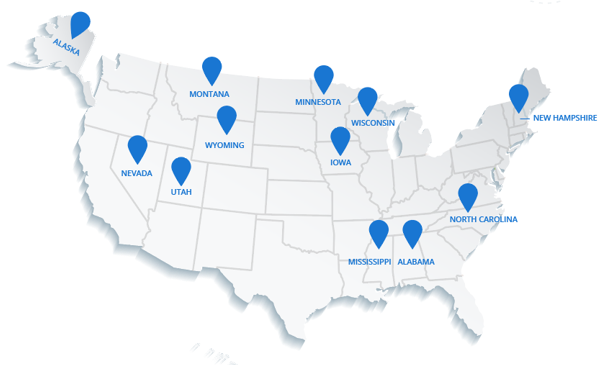Seeking registered nurse jobs? At DirectShifts, we have several RN jobs for nurses looking to accelerate their careers. Click on the links below to explore and apply for jobs now.
- Per diem and travel nurse jobs
- Medical-surgical travel nurse job in New York
- Emergency nursing opportunity in New York
- ICU nurse opportunity in New York
When the going gets tough, the tough get going. John Thomas, Football Coach.
Nurses are one of the few communities that live up to this phrase as a way of life. In times of adversity, they restore faith in humanity with their actions and commitment to professional ethos. They work in diverse clinical settings where tensions can soar to the point of incivility and violence. Although nurses are trained in critical thinking and problem solving to handle such situations during their Bachelor of Science Nursing (BSN) degree program, growing instances of violence against nurses have been a cause of concern. While emergency nurses and nurses of color have been particularly vulnerable to violence during the pandemic, the safety challenges of travel nurses are further compounded by the nature of their work.
This article is meant to be a guide for workplace violence prevention for travel nurses.
What makes travel nurses vulnerable to violence?
Travel nurses take up short-term assignments in distant locations that can be potential high-risk areas for workplace violence. Since they are away from home and their support system, traveling to a new place once every few months or weeks, they may not have access to immediate help during an emergency.
The responsibility for workplace violence prevention, therefore, lies entirely on their employer and themselves.
So, what can travel nurses do to ensure workplace violence prevention?
Here are some strategies that can help de-escalate threat scenarios:
Research the employer
Before taking up a travel nurse assignment, research the employer and the location thoroughly.
- Is the location a high-risk area for violence?
- What is the organization's policy for incivility and violence against staff members?
- How far is the organization from the nearest police station?
- How far is your accommodation from the organization?
These are some of the many relevant questions that you might want to consider to decide on an assignment.
Ask the right questions
Not all employers post their internal policies on the internet. Hence, it may be hard for you to figure out how the organization may handle such situations. In addition to preparing your nurse interview questions and answers, keep the following list of questions ready to ask the employer:
- What is the employer's policy against workplace violence?
- What are the protocols and procedures in place to handle a threat situation?
- Are staff members trained to think and act on their feet during such scenarios?
- How are incidents investigated?
- How are they documented?
- How does the organization support staff members, including locum nurses such as yourself, affected by violence?
Seems like too many questions to ask around a single topic? The employer may or may not think that you are paranoid. But by the end of it, you'd be crystal clear about whether the organization has a robust violence mitigation mechanism to protect you. And that should help you decide if you would like to proceed with the travel nurse assignment.
Trust your instincts
If you don't feel comfortable taking up a locum role, say no. Avoid the tendency to brush aside your gut feelings about a place or a patient. Even while you're on a travel nurse assignment, there may be several instances when you will need to tend to a patient alone during night shifts. If the patient ever comes across as unstable or uneasy, never hesitate to ask a staff member or security guard to accompany you during the visit.
Pay attention to behaviors
On the work floor, regardless of whether you are dealing with a patient or a co-worker, be attentive to people's behaviors. There are several behavioral indicators that can alert you to a potential threat situation.
Verbal Cues:
- Yelling or speaking in loud voice
- Mumbling
- Swearing
- Threatening tone of voice
Non-Verbal Cues:
- Staring
- Unkempt and unhygienic
- Clenched fists
- Arms held across the chest
- Pacing
- Heavy breathing
- Looking terrified
- Aggressive posture
- Thrown objects
- Sudden behavioural changes
- Symptoms of inebriation and substance abuse
These cues are warning signs that mostly precede violent behaviors.
Use the Triage Tool
The Triage Tool is a set of questions that have been developed based on research with abused women, Emergency Department staff, and emergency workers at a hospital and mental health facility.
The Triage Questions:
- Have you been troubled or injured by any sort of abuse or violence?
- If yes, was it someone in your family, an acquaintance or a stranger? Could you describe?
- If yes, has this happened before?
- If yes, when? Describe.
- Do you have anyone to protect you from possible further injury?
- If yes, who?
- Is this hurting you very badly? Are you having thoughts about hurting yourself?
- If yes, what thoughts are you having?
- Is this making you angry to the point that you have considered hurting someone else?
- If yes, have you ever threatened or hurt someone in the past?
These questions will help you assess the needs of the individual and the situation at hand. However, you will need to go beyond simple yes/no' responses and try to develop a meaningful conversation, as it can be an opportunity to talk them down and diffuse the situation.
Why are these responses important?
A person's responses to Triage questions are important because:
- A history of violence, victimization and suicide attempts increases the current risk of violence.
- Suicide risk increases when a victimized person lacks social support. Their tendency to harm themselves may spill over as violence against nursing personnel who try to stop them.
- When people with violent fantasies feel suicidal, the risk of assault and homicide multiplies.
- Knowing the nature of the relationship with their significant other can help decide what to do next.
These are some of the most legitimate strategies to ensure workplace violence prevention for nurses. Regardless of where you work and the difference you make in others' lives, always remember Safety Comes First.
If you're looking for safe travel nursing jobs with trusted employers, apply for opportunities at DirectShifts.
January 7, 2021




Comments